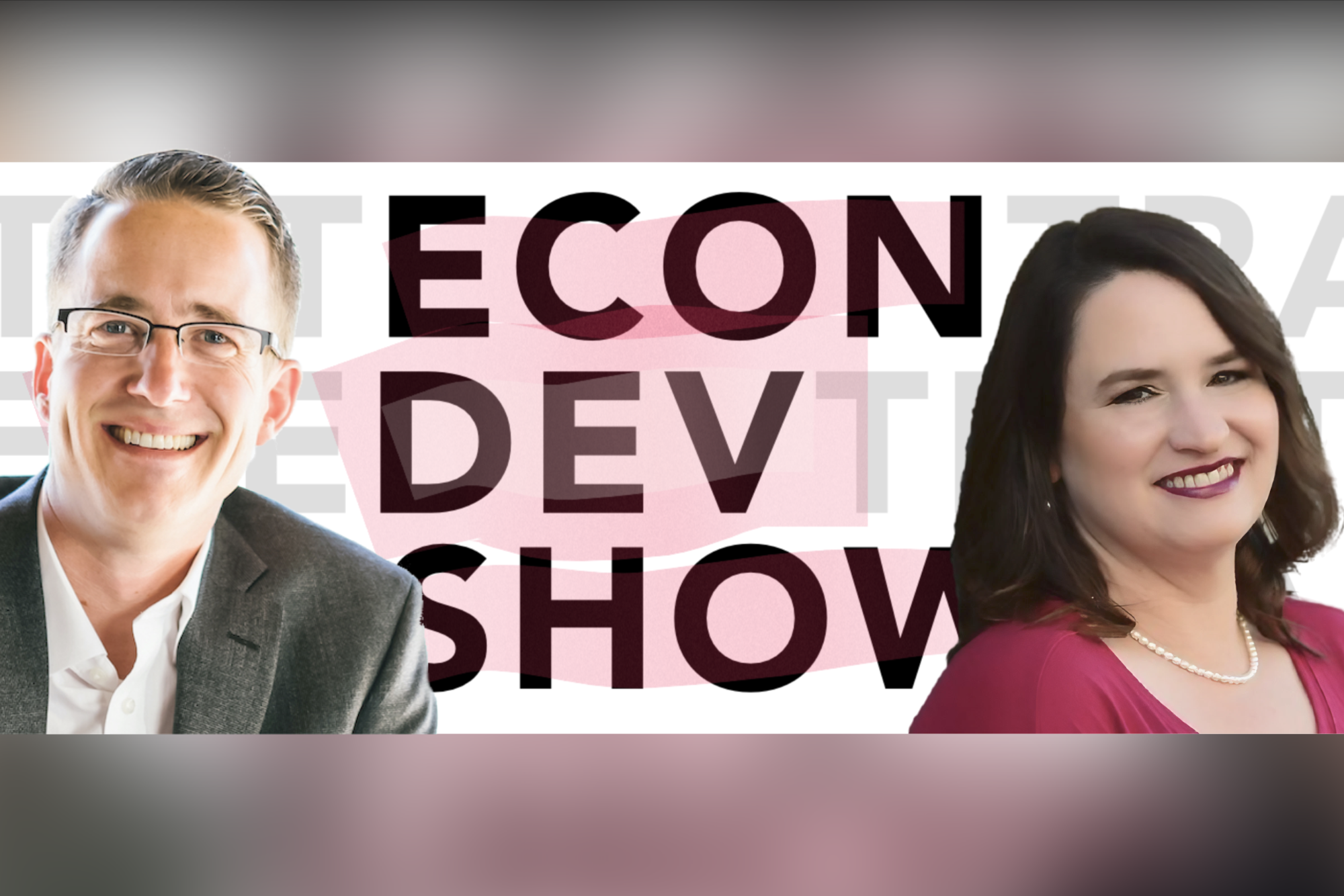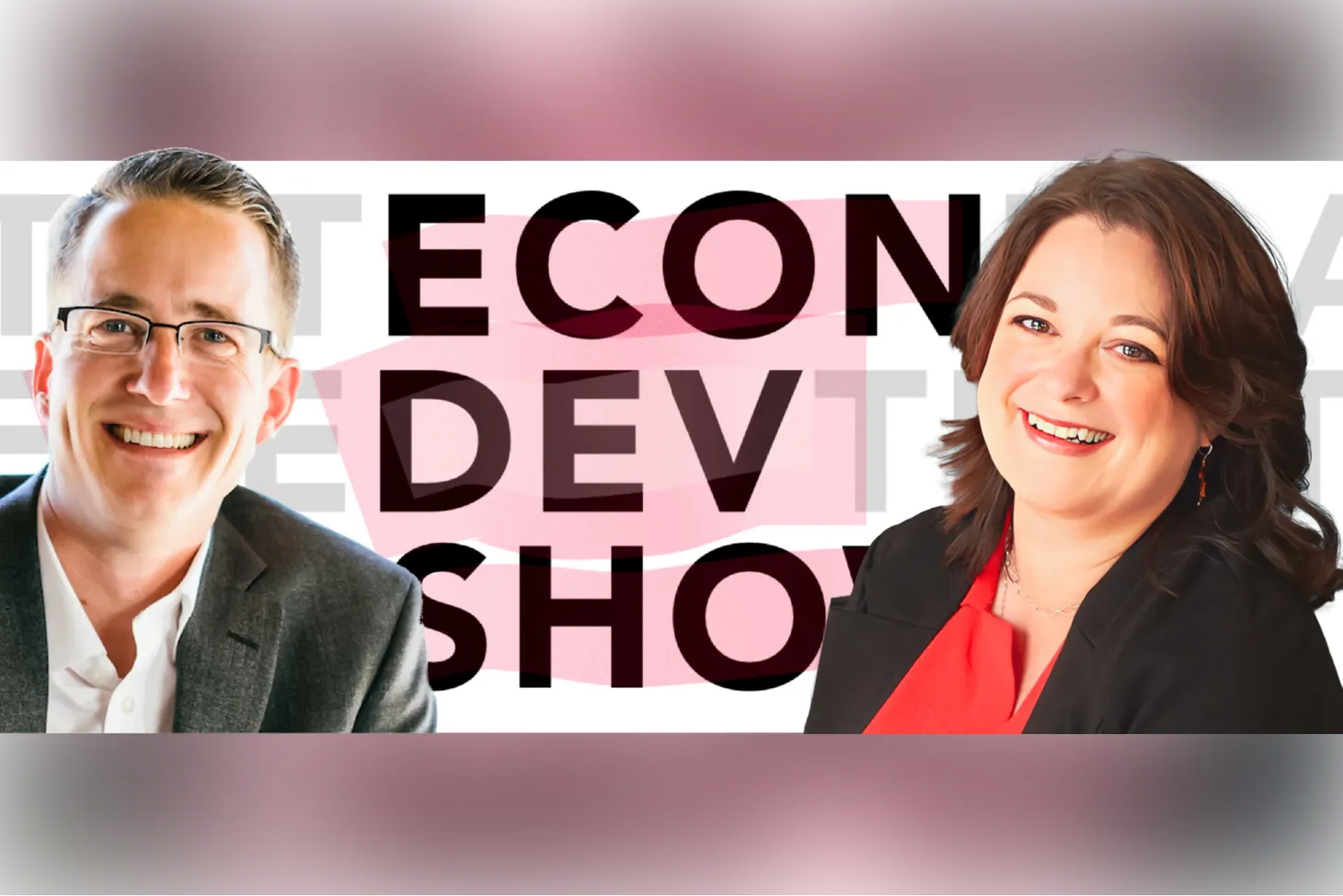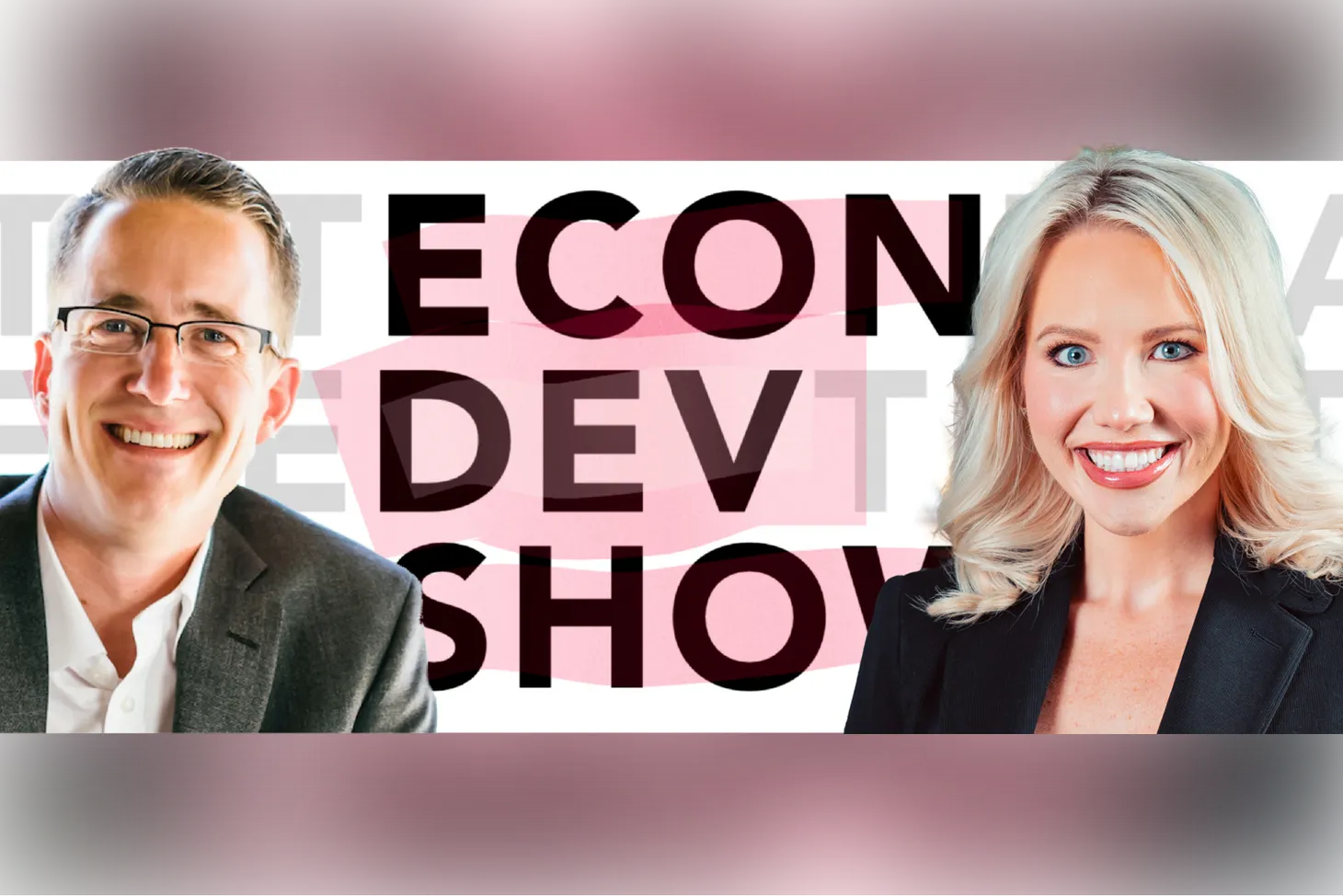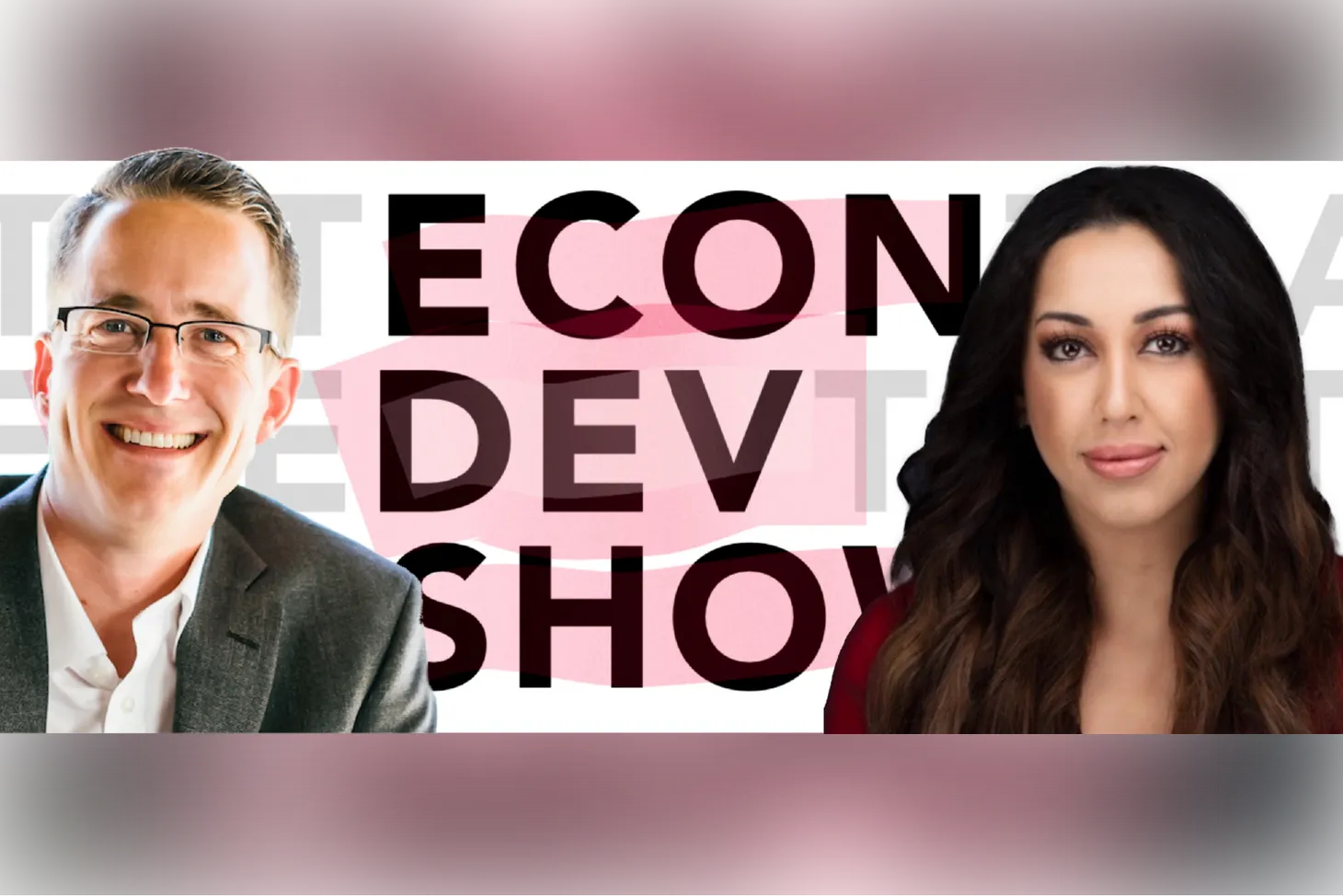Podcast Transcript #106: Jamie Beasley
Prefer to read?

Dane Carlson: Our episode today is brought to you by Kathode Ray Media, a full service marketing agency that connects government organizations to their communities. Contact them to learn more or ask for a free no obligation consultation.
Prefer to listen? Here's the audio podcast.
Dane: Welcome back to the Econ Dev Show. Today we're here with Jamie Beasley. She is the executive Director at the Pushmataha County Chamber of Commerce in Oklahoma. Jamie, welcome to the show.
Jamie: Thank you very much, Dane. I'm glad to be here.
Dane: Well, I'm glad to have you. I was just saying congratulations, on your, what is this, your 31st day?
Jamie: Yeah, my 31st day as the director, so one month I made it. I'm excited.
Dane: Congratulations. Yes. Yes. And this is your first job in the industry.
Jamie: Yes. So straight out of the gate, I'm in over my head.
Dane: Wow. That's phenomenal. So when you signed up originally to, uh, be on a guest on the show, you were, um, doing the master's program at the, what was it? The um,
Jamie: University of Southern Mississippi.
Dane: University of Southern Mississippi. Right. The Economic Development Master's program, I just interviewed, um, the, the, dean of that program? Yes. Just, uh, I think it was last week. I don't know when this will come out in relation, but yeah. I just interviewed him and so that was very interesting. Um, but you were doing that program, and this is not your first rodeo. You're a sort of, uh, mid-career sort of made a, made a change, um, from what I understand from, from the legal profession.
Jamie: I spent several years in the legal profession and then transitioned into a virtual assistant working with a variety of different industries and then wanted to do something bigger, um, that would impact more people than just like one business owner or a handful of business owners. And, I don't even remember how I came to economic development as the solution, but somehow or other I did. And then I found the program at USM, which as far as I could tell, was the only one, uh, master's program at least, and in and it's been great. I'll graduate in December and yeah, here I am.
Dane: Congratulations. Yes. That's phenomenal. So, um, while you were doing that program, you were looking for a job and obviously, um, obviously it was a challenge. How long did, did the job search take for you?
Jamie: A full year.
Dane: A full year, okay?
Jamie: A whole year. I started looking The moment I started school, I started looking for jobs in the economic development industry and I was looking for entry-level jobs. 'Cause I understand I don't have experience in the industry, although I have years of experience before. And, I think. Not that I had anybody specifically tell me this, but I just got the impression from things that people said that I basically fell in this weird place where I didn't have the experience for like the specific economic development experience for these even mid-tier jobs. So I was applying for administrative assistant within economic development departments. Or organizations, but I'm also in the master's program, so people, the hiring people know, I have no intention of staying as an administrative assistant. That is not why I'm doing this, but that's what they're hiring for. And understandably they don't wanna hire me, and then a year later I move up and they have to hire again. So basically I'm underqualified for the mid-tier jobs and overqualified for the like entry level jobs. And so, Yeah, it took a year and it took going completely outside. Yeah, it was going completely outside of anything I had imagined when I started to find this job.
Dane: So did you want to, you know, was it a requirement that you stay in Oklahoma or were you looking everywhere?
Jamie: For me, it was a requirement to stay in Oklahoma because my youngest son is in his last year of vo-tech. And I didn't wanna take him away from that program because ordinarily yes, economic developers move all over the place throughout their career, um, from state to state. And I'm not opposed to that, but I just couldn't do that right now. So. I had to stay within Oklahoma and that yes, seriously limited my, my opportunities.
Dane: Well, you landed there in uh, p Maha County. Um, so for our listeners who don't know, can you tell us kind of where that is and, and what's special about that?
Jamie: Push. Maha County is in the southeastern corner of Oklahoma. It is. Very close to Texas and Arkansas. Uh, it's closer to Texas and Arkansas than it is to like Oklahoma City and Tulsa, which are two major cities and it's very, very rural and it's very poor, but there's a lot of Love here. Like they love their community. They, they want to see their community prosper, and there's a lot of drive to do that, which is really exciting. And so I'm really looking forward to being a part of that and grateful that as an outsider, They are allowing me to be a part of that because, you know, there's some places where they're like, if you're not from here, then we don't want you. And that hasn't been my experience here at all. Or like all hands on deck. We want everybody, you know, working on this. So it's, it's been really good.
Dane: That's phenomenal. So what were the, uh, you know, what were your marching orders? What did the board tell you to do first?
Jamie: Working on the main street? Um, well, so we're actually the county chamber and there's three towns in this county. I mean, there's a number of unincorporated districts, but there's three towns, towns and we want to bring all the towns together. And so that's kind of part of my job because they typically have it worked together. So it's like, let's get everybody on this boat, but the office is Located in Antlers, which is the county seat, and all of the chamber members and board members are antlers, you know, in antlers. So their first specific project Was the main street. Like we want to, you know, it's a little rundown and it needs some work and some love and well, they have the love but it needs some work So, you know, that's been, was my first specific project to work on, is getting grants for paint or street lamps or, you know, stuff like that. So I'm kind of working on that, but also reaching out to the other communities to see what they need and how we as a chamber can support them. So it's been a busy, busy month.
Dane: I bet, I bet. So has it been what you expected? Is this what you thought economic development was like when you were, um, you know, just starting your master's program?
Jamie: Maybe, I don't know about when I was just starting, but as I went through the, like the last year, it really is True to what they taught. It's just different experiencing it rather than know, you know, like being told this is what it's like and then you're in it and you're like, this is what it's like, but it's a lot harder. You know, when you're. Actually in it and doing it, and it's, you know, relationship building is huge and they teach that in the, in the program. And politics and interpersonal stuff is huge and they teach that in the program. But it's one thing to hear it that this is something you'll deal with and then it's another thing to get in there and actually try and do it. So
Dane: Right. I, I, I imagine that's, uh, yeah, that's, that's a huge challenge. So do those other little cities, do they have chambers of commerce or other little civic organizations that are very territorial? Or is it, it's just sort of open and wide open and ready?
Jamie: Well, there's, so there's basically the county is divided, unofficially divided into the north end and the south end. Um, no other community has currently has a Chamber of Commerce. It's The North End has, because there's like a 45 minute drive between these two cities. They have been a bit territorial and, but I think, I think everybody's kind of ready to come together. You know, I think it's, they've got some new, new kind of new blood on their city council and, and Antlers has some new blood on their Chamber council. And so I think everybody's ready to come together and like, all right, how can we make this work for everybody? How can everybody benefit? And what do we need to do to bring those benefits to our, to our community? So
Dane: Well. There's nothing like working in, in a little community. It's, uh, yeah, it, it has its own set of unique challenges and, uh, opportunities.
Jamie: Absolutely. I actually really, when I, as I was going through the master's program, I knew I wanted to work in a small community because in a large cities you do, like, you're in one department, you do one thing and you get really good at that one thing, but that's all you do is that one thing. Whereas in a small town, you do everything, your hands are in everything, and you learn About everything and it's just, it's really fascinating and it's a challenge and it's never, ever, ever boring, which is important to me, So I really like working with the small towns.
Dane: That's great. Now, before you got the, the job and while you were, you know, in the middle of your year long job search, you were, uh, leaning on your, on your virtual assistant business, and you said that . You niched down to independent economic development consultants. So tell us about that.
Jamie: Well, I had been doing virtual assistant for like six years and very much a generalist, but I was in the economic development program and I was loving what I was learning, but I also recognized that I needed to Get real world experience or work with people who have real world experience and learn from, you know that. And so I had decided yes to niche down into independent economic development consultants because, you know, they're small. They're like one man, two man shops, and a lot of times they need administrative help, but they don't either have the funds or the, you know, whatever for a full-time assistant. So virtual assistant. So that was my plan, and then I got this job and that plan went out the window.
Dane: Well, that's good. Yes. So the, the best laid plans, yes. They, they go right out the window when they, you know, meet reality. Yeah.
Jamie: Absolutely.
Dane: Interesting, So, um, did you, did you find some economic development consultants that you thought might, you know, need this service?
Jamie: I only got to the point of meeting with one, um, that I thought would need, well, that did need this service, but it wasn't the right time for him. And so he's like, reach back out to me this summer and, and then by, you know, This summer I got the job so Yeah. And, um, so it just, yeah. Didn't, didn't work out. But like I said, I still think there's a niche there. If there's any virtual assistants out there that wanna work in economic development, I think there's, there's a need.
Dane: Yeah. And I think, uh, the other direction is probably interesting to know, you know, for, for economic developers in a small, even in a small, a very small town like, like you are, but maybe they have a, a, a little bit of additional funding. Maybe they, you know, have some budget, but they don't, they don't need a full-time other person in the office. Maybe a virtual assistant would help in those situations.
Jamie: Absolutely. I guarantee I could use a virtual assistant. I, I don't know that I could get one approved, but, um, yeah, I, I think there's absolutely a need for small towns that can afford a full-time assistant or don't need a full-time assistant, but they need something. Um, um, yeah,
Dane: Right. And so what would that, if you were just brainstorming, what would that look like? You know, what kind of work would they do and, and you know, how does that work?
Jamie: In my instance, it, my, if I were to have an assistant that I would ask them to handle the social media, uh, updating the website, uh, newsletters, Answering the phone. I mean, I have a cell phone so I can answer the phone, but if I'm, you know, sometimes I'm in meetings or, you know, whatever, so they, I could forward calls to them or, you know, um, but mainly all the computer work, like spreadsheets, updating spreadsheets, or just anything that needs to be done on the computer. It would be great to be able to have an assistant to do that so that I can be out talking to business owners, talking to community leaders, talking to just regular people who have thoughts on what they wanna see their community do or how they, where they wanna see it go. Um, that's the part that I really love, and I think that's the part that most economic developers love is the being out and about and trying to get things done. But since it's just me, my time is split. Between that and doing the administrative stuff. And it would be great to be able to like, Hey, we need to put this up on the website, this event, or we need to schedule a ribbon cutting and send out a, an email to all of our members. Things like that would be fantastic to have, to have somebody else to do.
Dane: Right. To have someone else to do that. Just those, you know, a few hours a, you know, a week or whatever, what, whatever it takes to just handle those kinds of things.
Jamie: Absolutely.
Dane: Interesting. That's interesting. Yeah. . And I'd imagine that, uh, um, virtual assistants are always looking for more, you know, more work.
Jamie: And there's a million little towns, so no shortage of potential clients.
Dane: Right? There's a million little towns that all you.
Jamie: Absolutely.
Dane: Oh yeah. Well, this might be an idea. You might have you might have stumbled onto something else.
Jamie: Someone runs with it.
This content is for Paid Members
Unlock full access to Econ Dev Show and see the entire library of members-only content.
SubscribeAlready have an account? Log in


